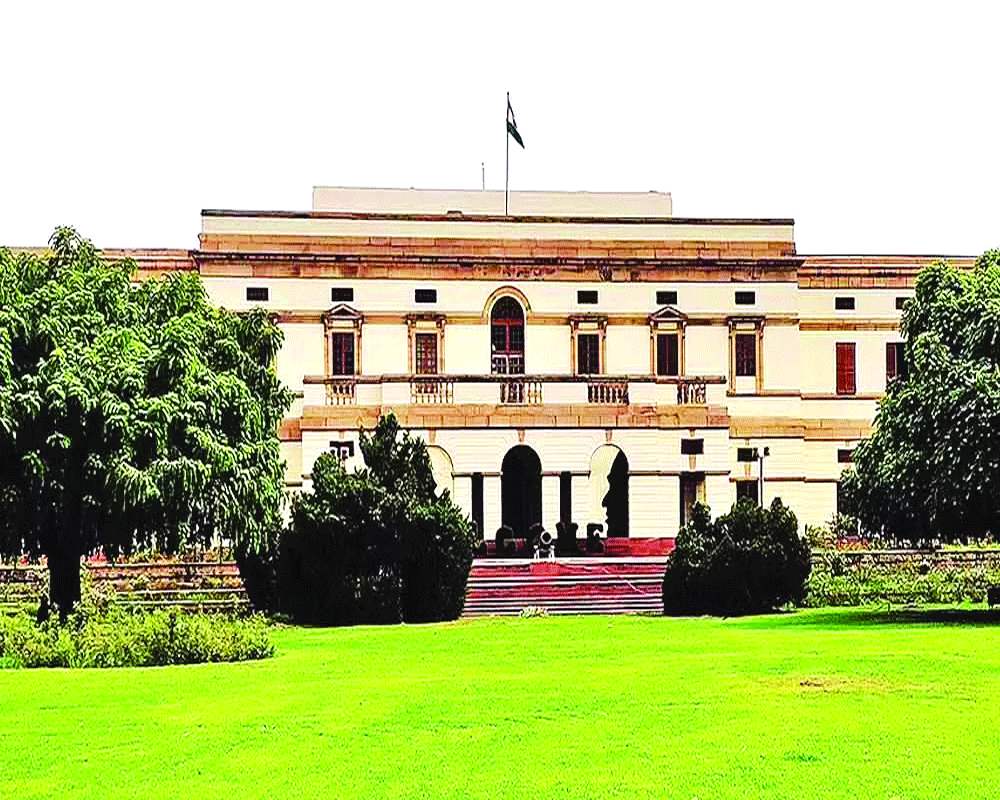If any memorial is desired by the family or kin of a deceased leader, it should be built in tune with his or her character as well as achievements
One fails to comprehend why there is so much hullabaloo over the Nehru Museum being renamed as the Prime Minister’s Museum and Library. In any case, it was rather incongruous, to say the least, to house Jawaharlal Nehru, then newly crowned India’s Prime Minister after the British left in 1947, in the residence of the British Indian Army. Nehru of course, led with delight the taking over of the reins of power from the British Empire. However, he disliked the armed forces greatly. When General Sir MacDonald Lockhart, the British Commander-in-Chief of our army asked Prime Minister Nehru in the early days of Independence as to his broad intentions about the scope of the Indian army’s missions, so that he (Lockhart) could begin planning the size and equipment of the force, Nehru’s quick retort was that India believed in peace and therefore did not need any army. The police that were then available in the country were adequate to protect us.
Prime Minister Nehru remained consistent in these views. He did not expand the armed forces nor did he acquire any new weaponry for them. The result was the disaster in Ladakh and N.E.F.A. (now Arunachal Pradesh). The Chinese Radio boasted that its troops look forward to celebrating the Christmas of 1962 in Calcutta. Their invasion began on 20 October and ended with a unilateral withdrawal on midnight of 20 and 21 November. During those unfortunate months, thousands of our army jawans laid down their lives in trying to resist the People’s Liberation Army (PLA). Many more were wounded by frostbite because those soldiers who were dispatched in a hurry after the invasion began were ill-equipped. They went up the high mountains with one thin pullover, a pair of thin woollen socks and no gloves. The footwear our soldiers had were no more than ordinary canvas shoes. Thus, many unfortunate soldiers suffered frostbite by the thousand.
Prime Minister Nehru was so shaken at this national humiliation that he wept on the radio while addressing the nation. His heart went out to the people of Assam, he cried in English. “Assam khatre mein hai”, he wept in Hindi. It was a comprehensive route presided over by General B.M. Kaul, who had not seen action throughout his career, and whose only qualification for being appointed army chief was that he happened to be related to Nehru. Yet a captive establishment and fawning media shielded India’s first Prime Minister from any fallout; his loud-talking and irascible, though intelligent, defence minister V.K. Krishna Menon was made the scapegoat for the 1962 disaster and made to resign to pacify national anger.
The mother of parliaments, namely Britain’s Westminster, does not provide apartments or houses to its Members of Parliament. House rent allowance is part of the basket of allowances given to the MPs. Quite contrary to what is often loudly claimed by his acolytes, democracy in our country is in no way a gift bequeathed by Nehru or his dynasty. It flourished in ancient India in myriad forms. For instance, Krishna, who is worshipped as an avatar of Lord Vishnu, was a Republican himself. He was the de facto president of the Vrishni league, one among the numerous Yadava clans that made up the Confederacy of Mathura. Krishna’s struggle against the rampaging Magadhan titan Jarasandha, a ruthless imperialist, was a struggle to protect and preserve the republican way of life against the aggrandizement of a superpower.
Democracy in India wasn’t confined to Krishna and Mathura. Northwestern India had many republics that valiantly fought the invading Alexander, like the Mallas and Kshudrakas. Greek sources admit that Alexander could overcome them only after suffering considerable casualties. Vaishali, a neighbour of Magadha and at loggerheads with the latter was home to the renowned Vajji republic inhabited by the Licchavi people.
If any memorial is desired by the family or kith and kin of a deceased leader, it should be built in tune with his or her character as well as achievements. In this context, the two bungalows at Safdarjung and Akbar Road in India’s capital, converted into a sort of memorial for the late Indira Gandhi is a shabby effort. One, because the bungalows were state property for ministers or officials of the state to live in; Secondly, the two neighbouring bungalows in no way reflect the life and work of the distinguished lady. A place at Janpath occupied by the descendants of India’s second Prime Minister Lal Bahadur Shastri is another instance.
One of Jawaharlal Nehru’s admirers claims that the library situated in the palatial bungalow of the former British commander-in-chief of the Indian Army of the colonial era has contributed a great deal to the intellectual life of the country. Now, no matter where this library might have been situated, it would have served the same purpose. Architecturally, it detracts from the majesty of the commander-in-chief’s palace.
It has no memorial value, unlike the 17th century Mughal prince Dara Shikoh’s library, which is a reminder that had he ruled India, there might have been no Partition. It has been an appropriate step taken to convert this library into a Partition Museum to enable India’s present and coming generations to know about what transpired in those years.
(The writer is a well-known columnist, an author and a former member of the Rajya Sabha. The views expressed are personal)


























